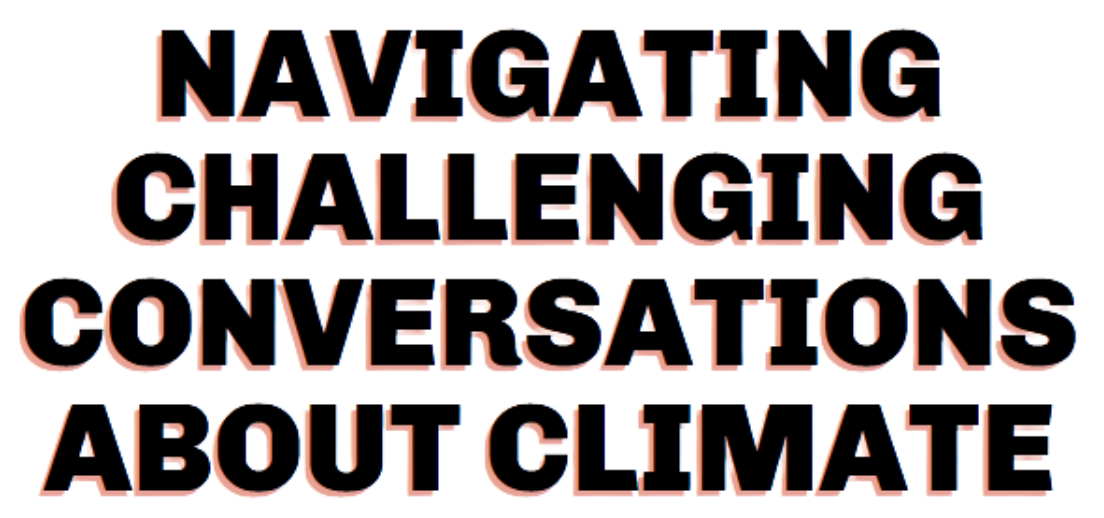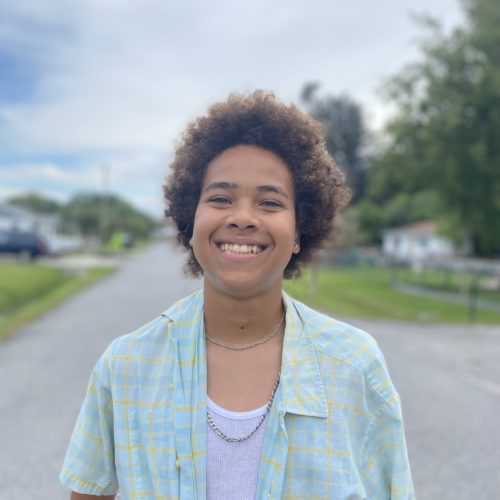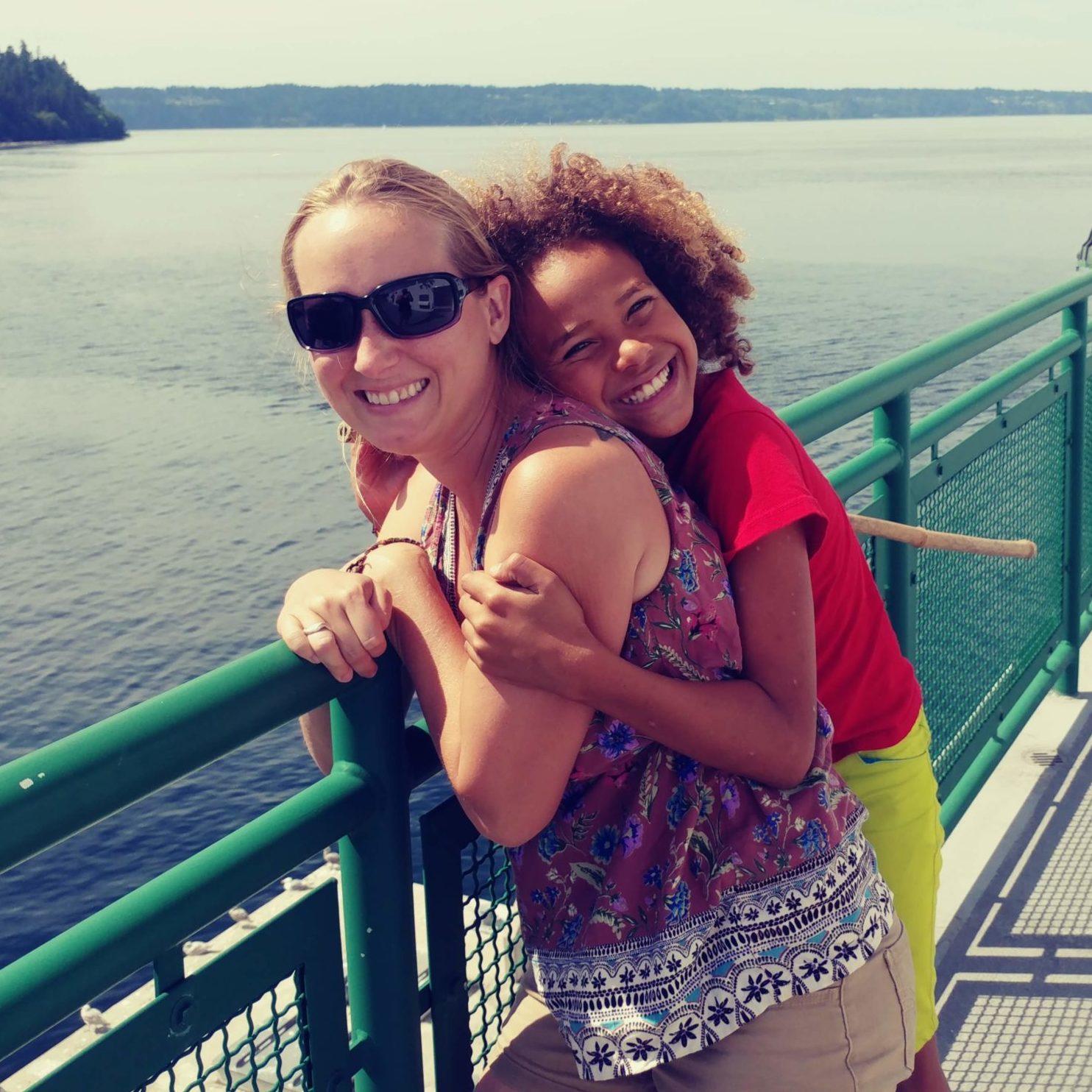
Because climate intersects with so many other issues (racial justice, reproductive justice, national security, etc.), conversations around it can get controversial real quick. Suddenly, the temperature in the room is rising and voices are getting louder…
The following tips aim to leverage climate action for the building of stronger relationships between people who have a different generational and/or educational perspective:

Lead with purpose.
Convey an emotional or personal connection to climate action and environmental justice. Connect through your WHY. You want to inspire others to get behind you!
- Explain how and why this crisis affects you, your community, and future generations as well as your feelings about it.
- Action matters! It is easier to convey the urge to act by doing something about it. Illustrate how taking action can be fun!

Embrace new dynamics.
Choose passion, not defensiveness.
In the heat of a discussion it is common to feel excitement, anger or frustration. Embrace these feelings and elaborate on how climate issues impact you emotionally.
- Focus on finding an emotional common ground around what climate means in our lives. Use expressions like ‘It brings me joy when I…’ or ‘It is frustrating for me to see that…. Turn them into a deeper conversation by leading with questions like ‘What are your feelings on the topic?’

Be willing and receptive.
Practice active listening.
Understanding different perspectives will provide you with more tools to bypass climate denial, ease eco-anxiety and ultimately to take action.
- Make eye contact and avoid interrupting in an aggressive way. Also, take into account that in some cultures it is usual to alternate comments along the conversation.
- Avoid prepared responses, actually process what they say before responding. Ask follow up questions if you didn’t understand and/or want to clarify anything said.

Assume best intentions.
Not everyone will share your perspectives. And that’s okay! We all come from different time periods and cultural backgrounds. Climate issues can be a great conversation starter to learn more about someone else’s experience.
- Ask questions about their current climate awareness. Find out what small or big climate actions they have taken.
- Make your goal to share your own thoughts and reasons for taking action, rather than convincing others to do so.

Avoid invalidating or patronizing someone’s experience.
Don’t question others’ abilities or skill sets. Instead, try rewarding their efforts and encouraging them to keep doing more if they can.
- Sometimes we can unconsciously reinforce systemic silencing of underrepresented voices if we invalidate their lived experiences.
- Generalizations or broad statements can be harmful and inaccurate. Refrain from using them and focus on your own experiences instead.
Are you ready to have some intergenerational climate conversations?
See below some questions and dialogue prompts to get you started:
- What is your favorite place on Earth? Is it currently thriving? Is it under threat?
- What is your relationship with nature? Has it evolved over time?
- What were winters like when you were younger? What about summers? How are seasons different now?
- Is there anything you used to love to eat that is not as widely available now?
- When did you first experience the climate crisis and start thinking about its consequences? Can you provide personal examples?
- How do you feel about the future? Does the state of climate play a role in your visualization?
- Have you ever moved from different cities or countries? Why did you move? Did this relocation drastically change the weather or environment you live in?
- Have you ever left anything behind to seek a better future for yourself and/or your future generations?
- How do you feel about the climate crisis? Is there anything that you don’t understand?
- Conversely, if you were one of the ‘original marchers’, have you asked younger counterparts why they are marching nowadays? If so, how did they respond to the question? If you have not yet already, would you march together?
- For those under 40: have you ever asked anyone older if they participated in the Vietnam Anti-War protests, in the Indigenous Water Rights movement, in defending Women’s Rights and/or supporting LGBTQIA+ as well as Interracial Marriage Equality?

“I think that intergenerational allyship is useful because you get different perspectives on the issue. More aged people have tried alternatives when proving that a path doesn’t work. They know more.”
– LEVI DRAHEIM. Climate Activist and Plaintiff of the Juliana v. United States lawsuit (Said with 15 years).
“Hearing stories on how the environment has changed, how politics have changed, how people’s questions are different [is useful to estimate the reach of climate change]. Also, young people know how to use social media really well, they can get out there, spread the word, make the cool art project that gets people to look and talk about it. Having a mix of different age groups and different people is always useful. I think that diversity and community is very beneficial for this movement”
– LEIGH-ANN DRAHEIM. Educator and Levi’s and Juniper’s mom. (Said with 36 years)



